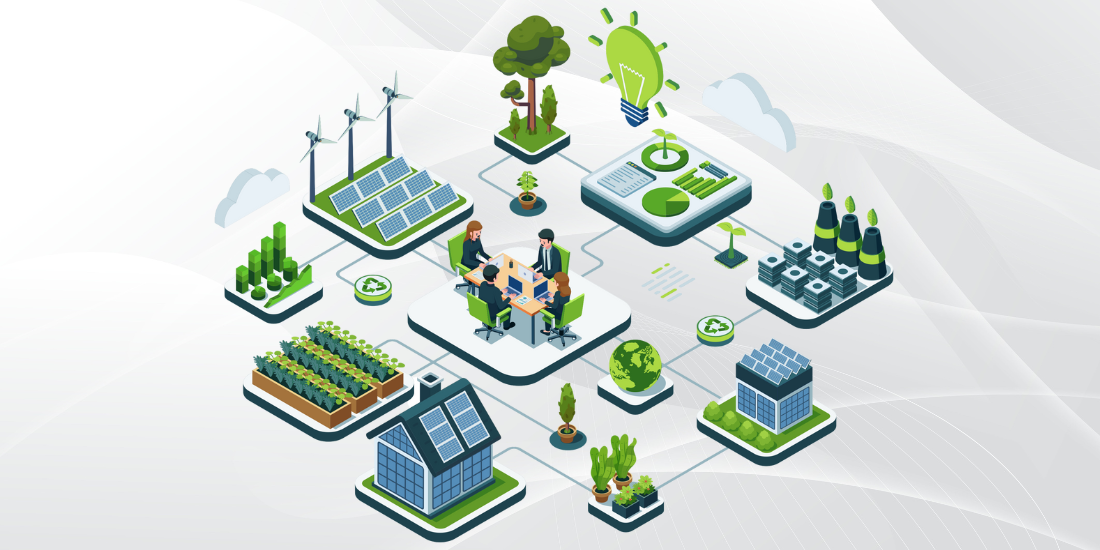


Sustainability for Business
Climate change and environmental issues are causing growing concern and reactions both in societies and organizations. In this context, the European Union has enacted a law requiring businesses above a certain size to disclose information about the risks and opportunities arising from social and environmental issues, as well as the impacts of their activities on people and the environment. The goal is to reduce their environmental emissions, creating both pressure and opportunities for businesses to set and achieve sustainability targets.
Business sustainability refers to the strategy and actions of a company aimed at reducing the negative environmental and social impacts of its operations in the market. Sustainability practices are usually assessed based on environmental, social, and governance (ESG) criteria.
Let’s look at some examples of sustainable practices from businesses:
Improving energy management efficiency by adopting alternative energy sources.
Developing infrastructure that limits greenhouse gas (GHG) emissions, protects water resources, and eliminates waste.
Operating efficient supply chains to strengthen the circular economy, promote reuse, design waste-free systems, encourage sustainable consumption, and protect natural resources.
Promoting sustainable development through risk assessment and resilience improvement, while adhering to external regulatory requirements and development goals.
In addition to compliance with regulations and adoption of sustainable practices, businesses must also foster a culture of innovation and collaboration to drive long-term sustainability. This includes investing in research and development of new technologies that reduce environmental impacts, collaborating with other organizations and stakeholders to share knowledge and best practices, and empowering employees to contribute to sustainability initiatives. By creating an environment where sustainability is integrated into every aspect of the business model, companies can build resilience, enhance their reputation, and create lasting value for both society and the environment.
Sustainability must be at the core of a company’s strategy and activities, as consumers are willing to pay more for products from brands that uphold environmental responsibilities. Moreover, governments, investors, employees, and customers demand greater accountability from businesses, including actions to combat climate change.
Companies must comply with environmental regulatory requirements and deadlines while improving their resource consumption.
Digital technologies such as artificial intelligence (AI), the Internet of Things (IoT), blockchain, and cloud computing play a significant role in implementing sustainability. The key to a successful sustainability strategy is balancing environmental factors with the key differentiators and industry demands. Therefore, sustainability remains a continuous trend that will continue to deeply influence competitiveness and even the survival of companies in the market.
This proactive approach not only strengthens a company’s sustainability performance but also positions it as a leader in the growing circular economy, where consumers and investors increasingly favor businesses that prioritize environmental and social responsibility.




